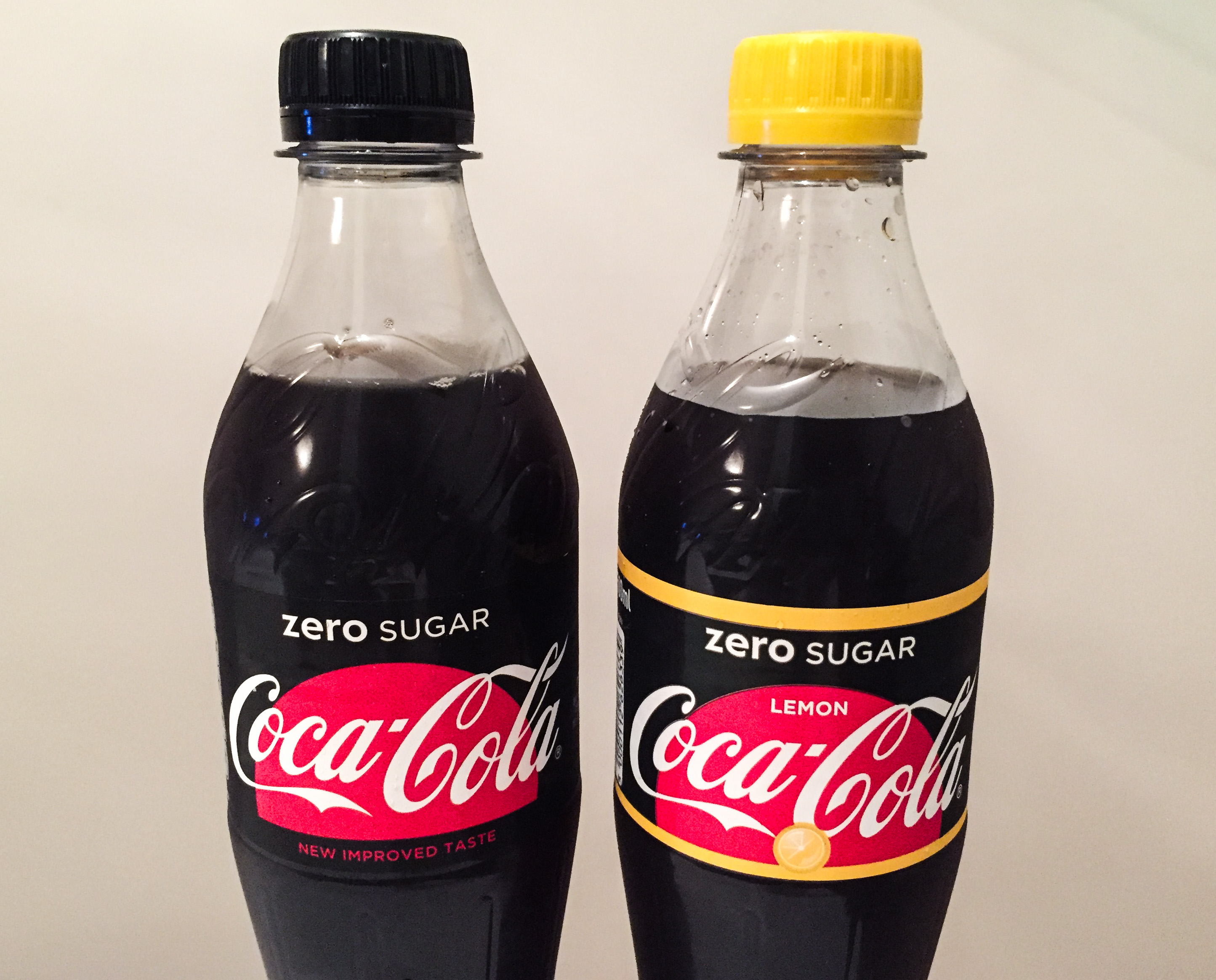Coke Zero is a popular sugar-free soft drink that has been marketed as a healthier alternative to regular Coca-Cola. However, there has been some debate about whether or not Coke Zero is actually bad for you. Some people argue that the artificial sweeteners used in Coke Zero can be harmful to your health, while others claim that there is no evidence to support these claims.
One of the main concerns about Coke Zero is the use of artificial sweeteners, such as aspartame and acesulfame potassium. Some studies have suggested that these sweeteners may be linked to a range of health problems, including cancer, diabetes, and obesity. However, many of these studies have been controversial, and the evidence is not yet conclusive.
Despite these concerns, Coca-Cola maintains that Coke Zero is safe to consume in moderation. The company points to a range of studies that have found no evidence of harmful effects from consuming artificial sweeteners in the amounts found in soft drinks like Coke Zero. However, it is important to note that excessive consumption of any soft drink, including Coke Zero, can lead to health problems such as tooth decay and weight gain.
Contents
- 1 Understanding Coke Zero
- 2 The Composition of Coke Zero
- 3 Potential Health Implications
- 4 Coke Zero and Weight Gain
- 5 Artificial Sweeteners in Coke Zero
- 6 Coke Zero and Dental Health
- 7 Coke Zero and Bone Health
- 8 The Debate on Cancer Risk
- 9 Coke Zero Vs Other Soft Drinks
- 10 Conclusion
- 11 Frequently Asked Questions
Understanding Coke Zero
Coke Zero is a popular sugar-free soft drink that was first introduced in 2005. It is marketed as a healthier alternative to regular Coca-Cola, which is high in sugar and calories. Coke Zero contains no sugar and no calories, making it a popular choice for those who are watching their weight or trying to reduce their sugar intake.
Coke Zero is made with the same ingredients as regular Coca-Cola, including carbonated water, caramel colour, phosphoric acid, natural flavours, and caffeine. The only difference is that Coke Zero uses a blend of artificial sweeteners, including aspartame and acesulfame potassium, to provide the sweet taste without the added sugar.
According to Coca-Cola, Coke Zero has been formulated to taste as close to regular Coca-Cola as possible, with the same great taste and refreshment. However, some people have reported that Coke Zero has a slightly different taste than regular Coca-Cola, with a slightly sweeter aftertaste.
Despite its popularity, there has been some controversy surrounding the safety of artificial sweeteners like those used in Coke Zero. Some studies have suggested that these sweeteners may be linked to health problems like cancer and obesity. However, the evidence is inconclusive, and regulatory bodies like the Food and Drug Administration (FDA) have deemed these sweeteners to be safe for consumption in moderate amounts.
While Coke Zero may not be as healthy as drinking water or herbal tea, it can be a good alternative to regular Coca-Cola for those who are looking to reduce their sugar intake or watch their weight. As with any food or drink, moderation is key, and it is important to consume Coke Zero as part of a balanced diet.
The Composition of Coke Zero
Coke Zero is a sugar-free soft drink that was first introduced by The Coca-Cola Company in 2005. It is marketed as a healthier alternative to regular Coca-Cola and is targeted towards individuals who want to reduce their sugar intake.
Coke Zero is made up of several ingredients, including carbonated water, caramel colour, phosphoric acid, natural flavours, caffeine, aspartame, acesulfame K, and potassium citrate.
The following table provides a breakdown of the composition of Coke Zero:
| Ingredient | Amount per 100ml |
|---|---|
| Carbonated water | 97.5ml |
| Caramel colour | 0.04g |
| Phosphoric acid | 0.015g |
| Natural flavours | 0.01g |
| Caffeine | 0.006g |
| Aspartame | 0.015g |
| Acesulfame K | 0.01g |
| Potassium citrate | 0.01g |
It is important to note that Coke Zero contains caffeine, which can have a stimulating effect on the body. Additionally, aspartame and acesulfame K are artificial sweeteners that are used to replace sugar in the drink. These sweeteners have been approved for use by regulatory bodies such as the European Food Safety Authority (EFSA) and the US Food and Drug Administration (FDA).
The composition of Coke Zero is designed to provide a sugar-free alternative to regular Coca-Cola while still maintaining a similar taste. However, individuals with certain health conditions, such as diabetes or phenylketonuria (PKU), should consult with their healthcare provider before consuming Coke Zero or any other sugar-free beverage.
Potential Health Implications
Consuming Coke Zero regularly may have potential health implications. Although Coke Zero is marketed as a healthier alternative to regular Coca-Cola, it still contains artificial sweeteners and other additives that may be harmful to health.
One of the main ingredients in Coke Zero is aspartame, an artificial sweetener that has been linked to various health issues. Research has suggested that aspartame may cause headaches, dizziness, and even seizures in some people. Additionally, some studies have linked aspartame to an increased risk of cancer.
Another ingredient in Coke Zero is phosphoric acid, which can cause damage to teeth and bones over time. Phosphoric acid has been shown to interfere with the body’s ability to absorb calcium, which can lead to weakened bones and an increased risk of osteoporosis.
Furthermore, the caffeine content in Coke Zero may cause negative health effects, especially if consumed in large amounts. Caffeine can cause insomnia, nervousness, and increased heart rate, among other symptoms.
In summary, while Coke Zero may seem like a healthier alternative to regular Coca-Cola, it still contains ingredients that may have potential health implications. Consumers should be aware of the risks associated with consuming artificial sweeteners, phosphoric acid, and caffeine, and should consider limiting their intake of Coke Zero and other similar products.
Coke Zero and Weight Gain
Coke Zero is a popular sugar-free soft drink that claims to offer the same great taste as regular Coca-Cola, without the calories. However, some people are concerned that drinking Coke Zero could lead to weight gain.

One of the main reasons for this concern is that artificial sweeteners, such as the ones used in Coke Zero, can actually increase cravings for sweet foods. This means that people who drink Coke Zero may be more likely to reach for sugary snacks and desserts, which can lead to weight gain over time.
Another factor to consider is that although Coke Zero is calorie-free, it is not nutritionally dense. This means that it does not contain any vitamins, minerals, or other essential nutrients that the body needs to function properly. Therefore, if someone is drinking Coke Zero instead of consuming nutrient-rich foods, they may be missing out on important nutrients that could help them maintain a healthy weight.
It is important to note, however, that there is no clear evidence to suggest that drinking Coke Zero on its own will cause weight gain. In fact, some studies have even suggested that consuming artificial sweeteners like those found in Coke Zero can help people lose weight by reducing their overall calorie intake.
Artificial Sweeteners in Coke Zero
Coke Zero is a sugar-free soft drink that uses artificial sweeteners to provide its sweet taste. Artificial sweeteners are a common ingredient in many low-calorie and sugar-free products and are used as a substitute for sugar. Coke Zero contains two main artificial sweeteners: Aspartame and Acesulfame Potassium.
Aspartame
Aspartame is a low-calorie artificial sweetener that is commonly used in sugar-free products. It is made up of two amino acids, phenylalanine and aspartic acid, and is around 200 times sweeter than sugar. Aspartame is used in Coke Zero to provide a sweet taste without adding calories.
There have been concerns raised about the safety of aspartame, with some studies suggesting that it may be linked to cancer and other health problems. However, the overwhelming majority of scientific research has found no evidence to support these claims. Regulatory bodies around the world, including the European Food Safety Authority and the US Food and Drug Administration, have approved aspartame as safe for human consumption.
Acesulfame Potassium
Acesulfame Potassium, also known as Ace-K, is another artificial sweetener used in Coke Zero. It is around 200 times sweeter than sugar and is often used in combination with other sweeteners to enhance their flavour. Ace-K is used in Coke Zero to provide a sweet taste without adding calories.
Like aspartame, there have been concerns raised about the safety of Ace-K. However, studies have found no evidence to suggest that it is harmful to human health. Regulatory bodies around the world, including the European Food Safety Authority and the US Food and Drug Administration, have approved Ace-K as safe for human consumption.
In summary, Coke Zero uses two artificial sweeteners, Aspartame and Acesulfame Potassium, to provide a sweet taste without adding calories. While there have been concerns raised about the safety of these sweeteners, the overwhelming majority of scientific research has found no evidence to support these claims. Regulatory bodies around the world have approved both Aspartame and Acesulfame Potassium as safe for human consumption.
Coke Zero and Dental Health
Coke Zero is a sugar-free carbonated soft drink that has become increasingly popular in recent years. While it may be a healthier alternative to regular Coke, there are still concerns about its impact on dental health.
When it comes to dental health, the main concern with Coke Zero is its acidity. The drink has a pH of around 3.4, which is highly acidic and can erode tooth enamel over time. Enamel erosion can lead to tooth sensitivity, discolouration, and even cavities.
However, it’s important to note that Coke Zero is not the only acidic drink out there. Many other carbonated soft drinks, fruit juices, and sports drinks are also highly acidic and can have similar effects on dental health.
To minimise the impact of Coke Zero on dental health, it’s recommended to drink it in moderation and with a straw to reduce contact with teeth. It’s also important to maintain good oral hygiene habits, such as brushing twice a day with fluoride toothpaste and flossing regularly.
Coke Zero and Bone Health
Coke Zero is a popular diet soda that is marketed as a healthier alternative to regular soda. However, there are concerns about its impact on bone health.
Studies have shown that consuming high amounts of cola can lead to a decrease in bone mineral density, which can increase the risk of osteoporosis and fractures. This is thought to be due to the phosphoric acid in cola, which can interfere with calcium absorption and lead to bone loss.
While Coke Zero does not contain phosphoric acid, it does contain other acids such as citric acid and potassium citrate. These acids can also have a negative impact on bone health, although the extent of their impact is not yet fully understood.
Additionally, Coke Zero contains caffeine, which can also affect calcium absorption and contribute to bone loss. However, the amount of caffeine in Coke Zero is relatively low compared to other caffeinated beverages.
There is not yet enough research to definitively say whether Coke Zero is bad for bone health, it is important to consume it in moderation and to ensure adequate calcium intake through other sources such as dairy products, leafy greens, and fortified foods.
The Debate on Cancer Risk
There has been a long-standing debate on whether or not Coke Zero is bad for one’s health, specifically in relation to cancer risk. While some studies have suggested that the artificial sweeteners used in Coke Zero may increase the risk of cancer, others have found no link between the two.
One study conducted by the Ramazzini Institute in Italy found that rats exposed to aspartame, one of the main artificial sweeteners used in Coke Zero, developed a higher incidence of cancer. However, this study has been criticised for its methodology and the fact that the doses of aspartame given to the rats were much higher than what a human would consume in a day.
The WHO have recently released their recommendations that you limit your intake to 40mg per kilo of body weight but said it’s possibly carcinogenic, so could cause cancer.
In conclusion, there may be some debate on the potential cancer risk associated with the artificial sweeteners used in Coke Zero, the scientific evidence suggests that the risk is minimal at best. As with any food or drink, moderation is key, and individuals should always consult with their healthcare provider if they have any concerns about their diet.
Coke Zero Vs Other Soft Drinks
Coke Zero is a popular soft drink that has become increasingly popular in recent years. However, how does it compare to other soft drinks on the market? Here, we take a look at how Coke Zero stacks up against other popular soft drinks.
Sugar Content
One of the main selling points of Coke Zero is that it contains no sugar. This is in contrast to regular Coke, which contains a significant amount of sugar. Other popular soft drinks, such as Pepsi and Fanta, also contain a high amount of sugar.
Calorie Content
Coke Zero is marketed as a low-calorie alternative to regular Coke. It contains just one calorie per 100ml, whereas regular Coke contains 42 calories per 100ml. Other soft drinks, such as Sprite and 7Up, also contain a similar amount of calories to regular Coke.
Artificial Sweeteners
Coke Zero contains artificial sweeteners, including aspartame and acesulfame potassium, which are used to replace the sugar. Other soft drinks, such as Diet Coke and Pepsi Max, also contain these artificial sweeteners.
Caffeine Content
Coke Zero contains caffeine, with 34mg per 330ml can. This is similar to regular Coke, which contains 32mg per 330ml can. Other soft drinks, such as Mountain Dew and Dr Pepper, contain a higher amount of caffeine.
Conclusion
In conclusion, there is no clear evidence to suggest that Coke Zero is bad for you in moderation. While some studies have linked artificial sweeteners to negative health effects, the evidence is not conclusive and more research is needed to fully understand the potential risks.
It is important to note that consuming excessive amounts of any sugary or artificially sweetened beverage can have negative health consequences, including weight gain, tooth decay, and an increased risk of chronic diseases such as diabetes and heart disease.
For those looking to reduce their sugar intake, Coke Zero can be a suitable alternative to regular soda. However, it is important to remember that water and other unsweetened beverages should be the primary source of hydration.
Overall, the key to a healthy diet is moderation and balance. While Coke Zero can be included as part of a balanced diet, it should not be relied upon as the sole source of hydration or consumed in excess.
Frequently Asked Questions
Is Coke Zero worse for you than Coke?
Both Coke Zero and regular Coke contain high amounts of sugar, which can lead to health problems such as obesity, diabetes, and heart disease. However, Coke Zero is marketed as a healthier alternative to regular Coke because it contains zero sugar and calories.
Is Aspartame in Coke Zero bad for you?
Aspartame is the artificial sweetener used in Coke Zero. According to the European Food Safety Authority (EFSA), aspartame is safe for human consumption. However, some studies have linked aspartame to health problems such as headaches, depression, and possibly cancer.
Is Coke Zero healthier than Coke?
Coke Zero is marketed as a healthier alternative to regular Coke because it contains zero sugar and calories. However, it still contains artificial sweeteners and other additives that may not be beneficial for your health. It’s important to remember that both Coke Zero and regular Coke should be consumed in moderation.
What makes Coke Zero unhealthy?
Coke Zero contains artificial sweeteners, such as aspartame, which can lead to health problems if consumed in large amounts. It also contains other additives, such as phosphoric acid and caffeine, which may not be beneficial for your health.
Is it safe to drink Coke Zero everyday?
While Coke Zero is marketed as a healthier alternative to regular Coke, it’s still important to consume it in moderation. Drinking Coke Zero every day may lead to health problems such as obesity, diabetes, and heart disease.
Is Coke Zero as bad as Diet Coke?
Both Coke Zero and Diet Coke contain artificial sweeteners and other additives that may not be beneficial for your health. However, Coke Zero is marketed as a healthier alternative to Diet Coke because it contains zero sugar and calories.












